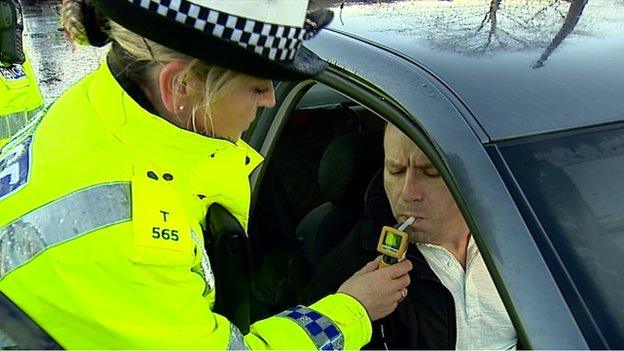Motorway lessons proposed for learner drivers
- Published
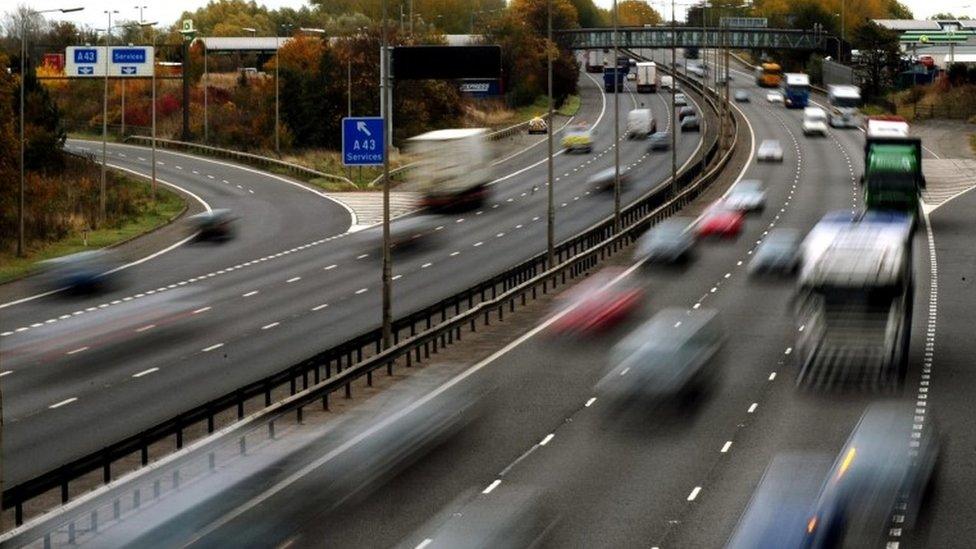
Fines for using handheld mobile phones would increase
Learner drivers in England and Wales would be given the chance to take lessons on motorways under government plans to improve road safety.
Lessons would be in a dual-control car with an approved instructor - currently drivers can only go on motorways once they have passed their practical exam.
Other plans include a crackdown on dangerous drivers, by providing police forces with more money for enforcement.
The proposals will be put out to consultation next year.
There will be a £2m research project into how to improve motoring education for learner and novice drivers.
As part of a wide-ranging strategy document - some of which applies to the whole of Britain and some to certain nations only, external - the Department for Transport, external also proposes:
Increasing penalty points for drivers who use a handheld phone at the wheel from three to four, with fines rising from £100 to £150 - a proposal announced by ministers on Sunday
Changes to laws to improve cycling safety and additional funding for cycle training in schools
Strengthening compulsory basic training for learner motorcyclists and encouraging greater post-test rider training
At present, fewer than half of learners pass their practical test first time - a statistic the government says it wants to improve.
"We will encourage a higher percentage of learner drivers to aim to pass their driving test the first time around, when they are truly ready for independent driving," the document states.
"In doing so, we will consider whether more should be done to support and reward a broader range of driving experiences, such as night driving and motorways, ahead of candidates obtaining their driving licence and whether restructuring the costs of the driving test would incentivise learners to undertake more pre-test practice."
'No time for parents'
Steve Gooding, director of the RAC Foundation, welcomed the announcement of motorway lessons.
He said: "Mile-for-mile, motorways are our safest roads but can be intimidating places for novice drivers.
"The important thing is the official seal of approval provided by the approved driving instructor who will accompany them down the slip-road.
"This is definitely not the time to have mum or dad in the passenger seat."
Neil Greig, director of policy and research at the Institute of Advanced Motorists, said: "Logistically, motorway driving can never be compulsory but for the many who live close to them, this offers a step change in their confidence and safety in our most important economic routes."
The strategy also sets out plans to give £750,000 to police forces in England and Wales to improve their ability to identify and prosecute drug-drivers.
'Hidden killer'
AA president Edmund King said drug driving was "the hidden killer" and extra efforts to tackle it were "welcome and overdue".
Transport Secretary Patrick McLoughlin said Britain's roads were some of the safest in the world, but more could be done to improve them.
"We are delivering common-sense proposals that balance tougher penalties for dangerous drivers with practical steps to help youngsters and other more vulnerable groups stay safe on our roads."
Northern Ireland is responsible for its own road traffic legislation, including driver and vehicle testing, road safety policy and vehicle standards.
- Published20 December 2015
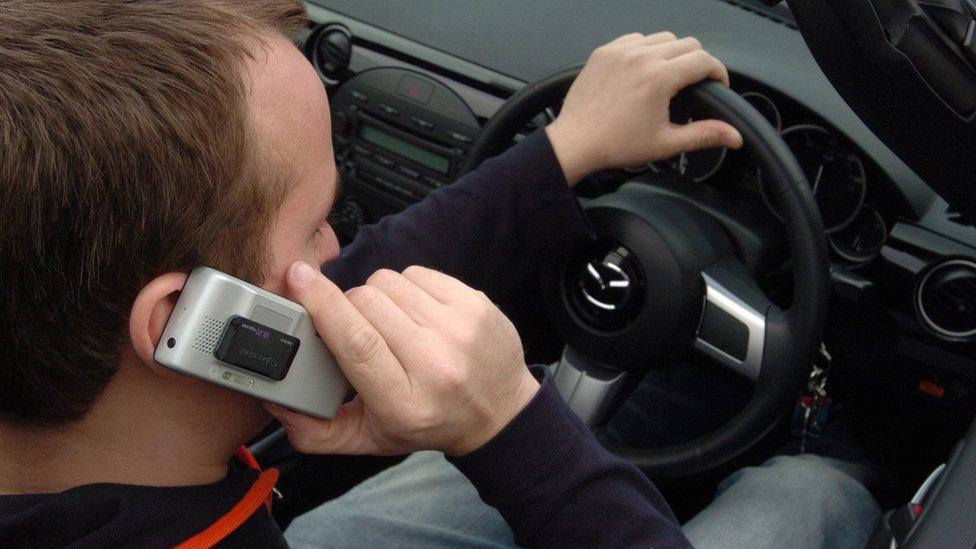
- Published21 December 2015
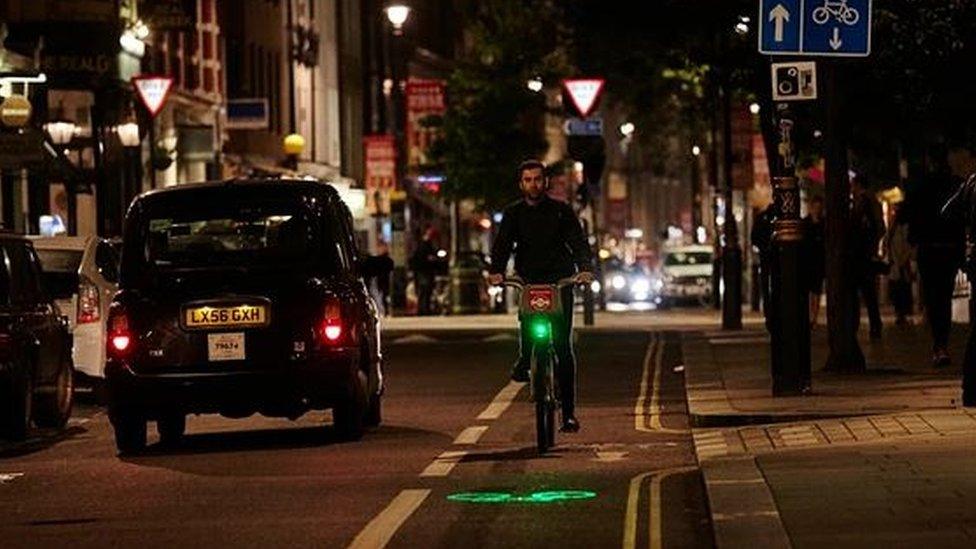
- Published16 December 2015
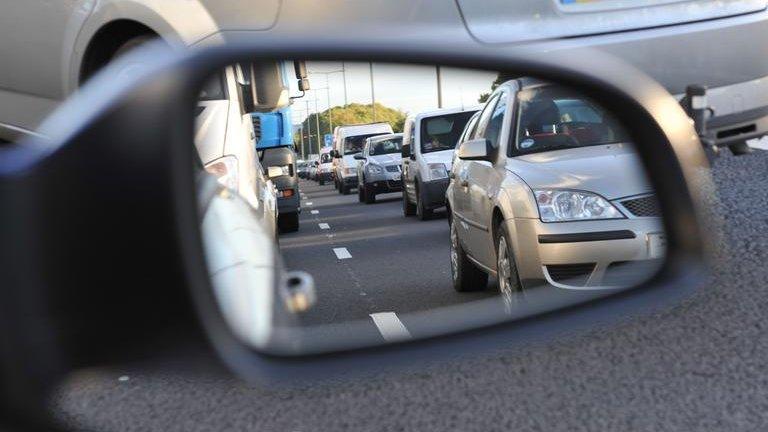
- Published4 December 2015
